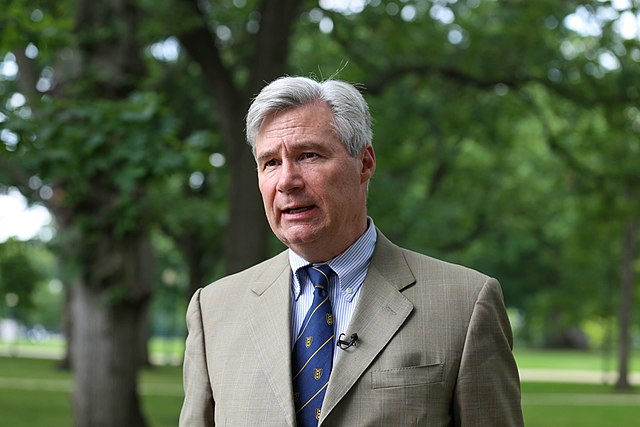WASHINGTON – Sen. Sheldon Whitehouse (D-R.I.), chairman of the Senate Budget Committee, advocated for a bill he introduced in April that would fund Medicare for decades to come, according to an estimate released last week from the Centers for Medicare and Medicaid Services Office of the Actuary, in a hearing Wednesday morning.
While the proposal did not garner much Republican support, there is no clear consensus from the minority party on how to sustain Medicare for future generations. Still, committee members were able to find common ground on the prevalence of tax loopholes and the opportunity to save costs in the program — though they disagreed on solutions.
“We face simple arithmetic, raise revenue or cut benefits,” Whitehouse said. “Those are the options if we are to preserve Medicare. If we abide by what seems like a bipartisan commitment not to cut benefits, we must safeguard Medicare by raising revenue.”
Under current legislation, the Hospital Insurance trust fund, also known as Medicare Part A, is expected to be depleted by the end of 2031, according to the 2023 Medicare Trustees Report. If depleted, tens of millions of Medicare recipients would see an 11% cut in reimbursements for inpatient hospital services, hospice care and home health services.
The Medicare and Social Security Fair Share Act proposes implementing a 1.2% tax increase — from 3.8% to 5% — for those earning income exceeding $400,000 a year. However, raising revenue for Medicare through higher taxes is not a popular idea among Republicans on the committee.
“I think the chairman and so many Democrats are pretty much one-trick ponies associated with Medicare; the only solution is increasing taxes,” Sen. Ron Johnson (R-Wis.) said. “I don’t think we ever generate revenue by increasing taxes because it harms economic growth.”
A lack of a concrete Republican proposal poses a challenge for policy debates to happen, Sen. Chris Van Hollen (D-Md.) said.
“When Paul Ryan was the chairman of the Budget Committee, he put forward a plan,” he said. “I disagreed with it, but I credit him and his colleagues with putting forward an idea. There’s no idea right now, apparently, in terms of the Republican Budget Committee.”
The bill would also expand Medicare’s reach by taxing investment income in addition to wages and salaries. This policy aims to prevent hedge funds and private equity firms from escaping Medicare taxes, which many have been able to do legally under current regulations.
“Closing this loophole would just mean that the labor of hedge fund managers would be taxed similarly to workers who are employed at the same companies these hedge fund managers are investing in,” said Chye-Ching Huang, executive director of the Tax Law Center at the New York University School of Law.
An important component of reforms aimed at closing loopholes, she said, is maintaining IRS base discretionary funding so that they can investigate taxpayers who are exploiting the system. Huang said she has seen signs of bipartisan support for closing the loopholes wealthy payers use to evade Medicare taxes.
Whitehouse said “faint outlines of progress began to emerge” during the committee today. Lawmakers on both sides expressed support for raising revenue and saving costs in Medicare, he said.
He said the bipartisan standing ovation at the 2023 State of the Union Address when President Joe Biden pledged to continue funding Medicare should offer some hope that the two parties can work together toward finding a solution.


